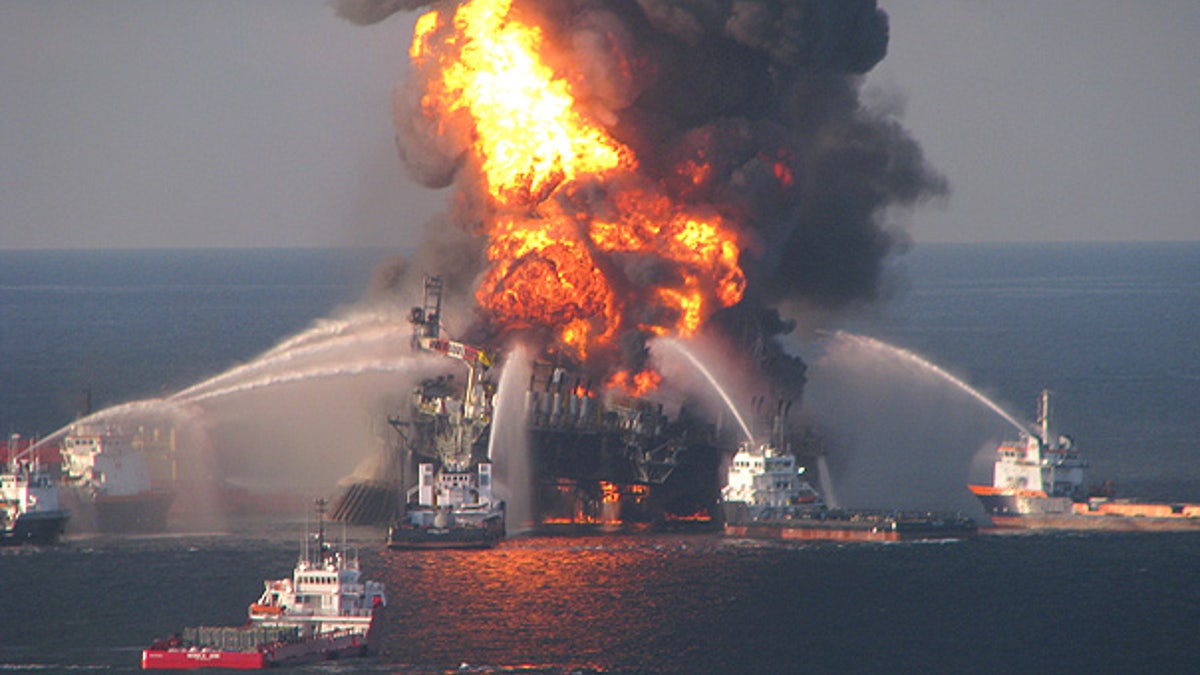
Apr. 21: Fire boat crews battle the blazing remnants of the offshore oil rig Deepwater Horizon.
The fire alarm system on the Deepwater Horizon oil rig was partially disabled prior to the catastrophic explosion that caused the oil spill in the Gulf of Mexico, a rig worker testified Friday.
The rig's chief electronics technician told a federal panel that the Horizon's general alarm system was deliberately set in "inhibited" mode so that sirens would not wake the sleeping crew in the middle of the night.
"They did not want people woken up at 3 a.m. from false alarms," Michael Williams told the six-member panel. As a result, the alarm failed to trigger during the emergency, and workers were forced to sound the alarm through the loudspeaker system on board.
But Transocean, the rig's owner, issued a statement Friday afternoon saying it is common for alarms on rigs and vessels to to be "zone based."
"It was not a safety oversight or done as a matter of convenience," the company said. "The Deepwater Horizon had hundreds of individual fire and gas alarms, all of which were tested, in good condition, not bypassed and monitored from the bridge. The general alarm is controlled by a person on the bridge and sounded from there, only when conditions require."
The company added that that too many false alarms can be a safety risk. And it highlighted a report dated a week before the blast that says the fire detection and suppression systems were in "good condition."
Williams said the craft's computer systems were a "wreck" when he started working on the rig in 2009. Equipment constantly malfunctioned, computers that were supposed to monitor the rig would lock up showing a "blue screen of death," and work was marred by many faulty detectors.
Williams said he tried to repair the systems but faced problems with equipment, and that replacement hardware -- ordered before the explosion -- had not been installed when disaster struck.
Williams filed a lawsuit against Transocean on April 29. He told the panel, which is meeting in the New Orleans suburb of Kenner, that he raised his concerns about the alarm and other issues to supervisors, but was chastised and written off.
When he questioned a Transocean official who turned a system that removes dangerous gas from the drilling shack to "bypass mode," the man reprimanded him, he said.
"The damn thing's been in bypass for five years. Why'd you even mess with it?" the official said, according to Williams' testimony. That supervisor, Mark Hay, told him the entire fleet of oil rigs runs on bypass mode.
The April 20 explosion on the Deepwater Horizon killed 11 people and unleashed one of the worst environmental disasters in U.S. history.
Williams, a retired Marine, survived the fire by jumping from the burning rig into the Gulf of Mexico.








































